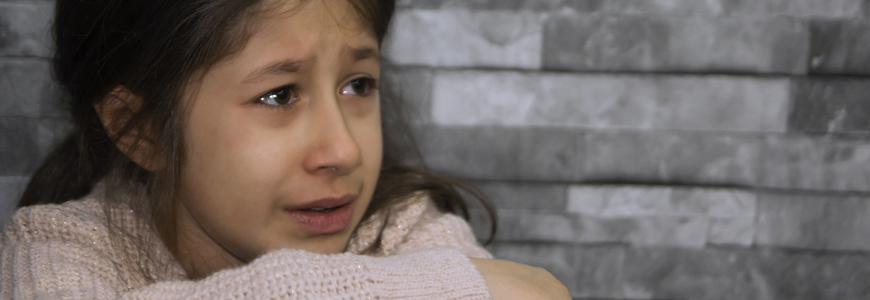Childhood trauma comes in many forms—from abuse and neglect, to domestic violence, to medical trauma from serious illness. Clinicians in the Duke Child and Family Trauma Program hold leadership roles in external organizations—most notably The Center for Child & Family Health in Durham, NC—that are dedicated to treating childhood trauma, offering an array of evidence-based treatments, collaborating with state and local agencies, and educating providers on how to bring this type of much-needed mental health care to their communities.
Lisa Amaya-Jackson, MD, MPH, a Duke child psychiatrist, co-directs training at the North Carolina Child Treatment Program and serves as deputy director of the UCLA – Duke National Center for Child Traumatic Stress (which coordinates the National Child Traumatic Stress Network).
Q: What types of trauma commonly affect children?
Amaya-Jackson: Children are exposed to an array of traumas and adversities. Traumas involve a sense of danger and life threats that invoke physical and emotional feelings of terror and powerlessness, and overwhelm a child’s capacity to cope. They include various forms of abuse and neglect, bereavement, domestic and community violence, natural disasters, mass shootings, war refugee experiences, serious medical issues, and other traumatic events.
Q: What are some of the assessments and treatments provided by the Duke Child and Family Trauma Program?
The core element of our work is to help educate children and their families on recognizing the symptoms of trauma and the importance of learning to handle them. Trauma not only causes problems for children early in their lives, but it also causes issues with their development and impacts their physical health. There’s a cumulative effect of trauma —the more someone experiences it, the more likely they are to have major health morbidities, such as lung disease, diabetes, cancer, substance abuse, and suicidal behavior.
We offer specific, trauma-focused assessments and evidence-based treatments, such as Trauma-Focused Cognitive Behavioral Therapy, Child-Parent Psychotherapy, and Parent-Child Interaction Therapy, as well as trauma-informed suicide prevention/treatment, and Supportive Psychotherapy for Adolescents Responding to Chronic Stress (SPARCS), among others.
Preparing the child to talk about the trauma, and assisting the parent’s support is the first step because it’s usually very difficult for children to talk about. We look at various measures of distress, lead them through simple desensitization exercises, and teach them ways to control their emotions so that they can talk about and process what happened to them. They learn to identify their trauma triggers for upsetting symptoms and gain control of their thoughts, feelings, and behaviors.
Q: In what ways does this program support parents and other caregivers in caring for children who have experienced trauma?
Amaya-Jackson: Children often think a traumatic event was their fault, so we do cognitive problem-solving, teach them about safety in relationships, and give parents skills to manage their children’s behaviors. For example, when a parent dies, the remaining parent will often hesitate to send their children to school because they’re so sad, but we teach parents that children will actually do better if they resume their normal routines. We also work with foster parents on how to support a child who has experienced trauma, such as how to soothe a child who has nightmares because of violence they experienced or witnessed, or how to help a child feel safe in a bath when they’ve been held under water by an abusive parent. We also lead efforts to provide early childhood intervention in the home for children and their parents who need some extra assistance and guidance in parenting infants and toddlers because of risk factors in their lives.
Q: What are some of the local and national collaborations Duke is involved in to raise awareness and expand access to care?
Amaya-Jackson: Our teams work with child welfare agencies, youth programs, police departments, and pediatricians to teach them what trauma-informed care means. When children and adolescents appear in “the system,” staff and providers can recognize that reactive or disruptive behaviors may be the result of biologically induced trauma responses triggered by certain events; this knowledge allows caregivers and their systems-of-care to provide appropriate support and resources within this context.
Through Duke’s affiliations with The Center for Child & Family Health and the National Child Traumatic Stress Network, we’re training providers to deliver state-of-the-art, evidence-based treatments, linking children with providers in their area who specialize in these treatments, and facilitating referrals. We’re supporting new research, collecting and analyzing data, and influencing practice by developing new treatment protocols and guidelines.
All of this work allows Duke to be part of a national effort to bring state-of-the-art trauma treatments to children and their families, increasing both access to care and quality of care.
